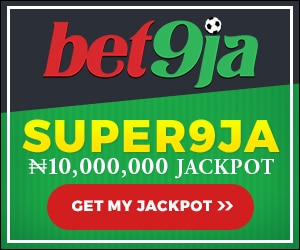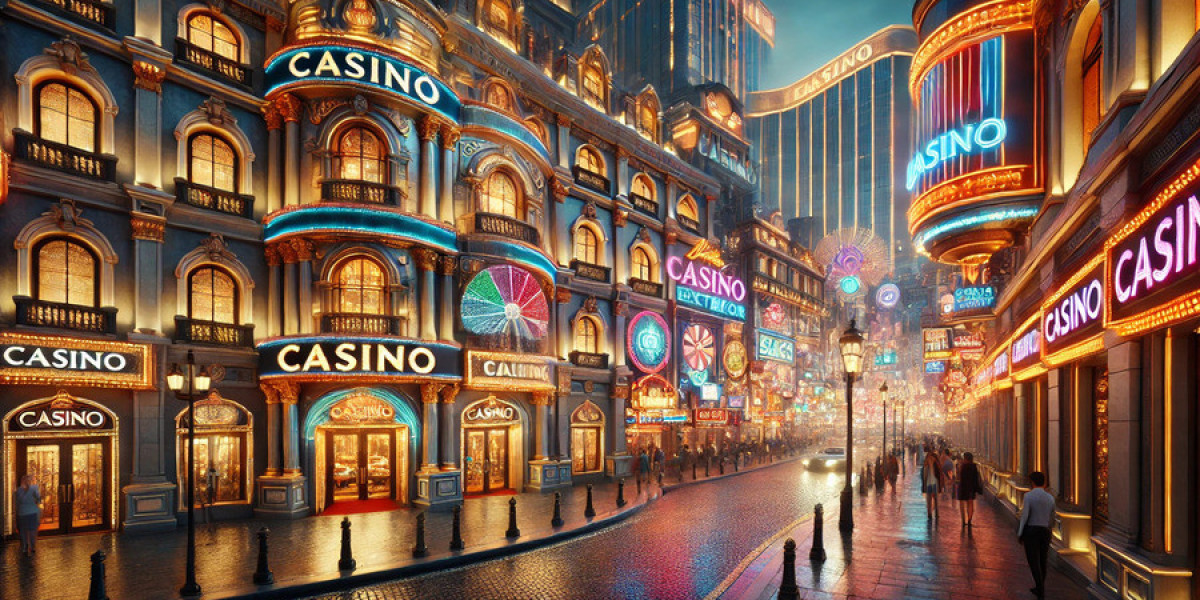The smiling faces of Paris Hilton and Ryan Seacrest made surprise appearances before the Louisiana Senate for Friday's hearing on illegal gambling.
No, they weren't personally in attendance, but the world-famous celebrities were conspicuously consisted of in a slide presentation on social and sweepstakes gambling establishments - the questionable websites using both totally free casino-style games and lucrative prizes, such as money, gift cards or cryptocurrency. In one advertisement, the fist-pumping Seacrest is seen plugging Chumba Casino, where anyone can 'play for free,' while a crop-topped Hilton holds a chip for sweepstakes operator, Wow Vegas, in the other.
The websites are simply two cogs in the multibillion-dollar industry that now finds itself besieged by lawsuits. In the eyes of many video gaming corporations, not to point out suit complainants and state regulators, sweepstakes casinos function as conventional gambling establishments, only without the oversight, customer protections and tax laws. So not just can they prevent the high 24-percent federal gaming levy, however sweepstakes operators aren't subject to regulative hurdles like anti-money laundering and responsible-gaming protections.
One operator, Australia-based Virtual Gaming Worlds (VGW), reported $4 billion in profits last year alone. Now the company deals with accusations of unlawful gambling in a New york city lawsuit that claims VGW utilizes celeb endorsers to 'develop a veneer of authenticity' around its item. (See VGW's statement listed below)
'I'm not exactly sure" if you don't trust us, you can rely on Paris Hilton" is a winning message for business running multibillion-dollar prohibited operations out of locations like Malta, Isle of Man, or US mail drops,' Friday's presenter, Howard Glaser of gaming corporation Light & Wonder, told DailyMail.com.
Sweepstakes endorsers consist of a series of celebs from sports betting enthusiasts Drake and DJ Khaled to swimmer Michael Phelps, in addition to NBA stars Karl-Anthony Towns and Paul George - none of whom offer any differences in between standard gaming and sweepstakes play.
Paris Hilton is seen plugging Wow Vegas, among numerous sweepstakes gambling establishments found online

Ryan Seacrest urges fans to play at Chumba Casino, where numerous - but not all - games are totally free
Drake has a handle social sweeps casino, Stake, that he frequently promotes on social networks
Learn more
Donald Trump 'set to call NBA team owner as US ambassador to Italy'
Instead, advertisements normally focus around the social aspect of the casinos, while omitting the capacity for real gambling losses.
Others lure clients with guarantees of prizes. One such operator, Stake, ran a social networks ad displaying Drake's cars, aircrafts and estates before rotating to video of the rapper playing online casino-style games.
'Daddy, why do we have a lot money?' check out the first caption on the screen.

Another caption explained: 'Because I never ever quit.'
The discrepancy in between sports betting sites and social or sweepstakes casinos is a bit complicated, however operators of the latter insist they're not included with the former.
A spokesperson for a market trade group, the Social and Promotional Gaming Association (SPGA), described its members are not in direct competitors with online casinos and sportsbooks. Furthermore, according to SPGA information, the majority of the gamers on social-sweepstakes casinos are sports betting free.
'Most social sweeps customers never ever make a purchase,' the SPGA representative told DailyMail.com. 'The minority of customers who make purchases do so in amounts far smaller sized than the common deposit or wager size at real-money online gambling sites.'
Social casinos use customers a chance to play casino-style video games with pals. Players have the alternative to purchase worthless currency typically referred to as 'gold coins,' which can not be exchanged for real money, however can be utilized to open numerous features within the video games.
But within the world of social gambling establishments exists sweepstakes video gaming, permitting consumers to acquire other currency referred to as 'sweeps coins' that can be exchanged for cash or other prizes.
And therein lies the potential for financial losses, like the ones declared by complainants in Florida, Georgia, New Jersey and New York City. One player informed the Washington Post he lost more than $100,000 on sweepstakes casinos in the past year after continuing to purchase more coins in pursuit of cash and other things of worth.
The Philadelphia 76ers' Paul George is seen promoting a Worldwide Poker event
Social sweeps casino Stake ran an ad showing off Drake's automobiles, aircrafts and mansions
Karl-Anthony Towns of the New York City Knicks is another NBA star plugging VGW's Global Poker
Traditional online gambling establishments are banned in all but seven states, which has helped to fuel the appeal of sweepstakes gambling establishments.
Anyone over the age of 18 can access the sweepstakes websites, which don't require typically need identification. However, websites like Chumba will ask for IDs from gamers trying to withdraw any funds.
Many websites, like the crypto-compatible Stake, permit customers to submit mail-in demands for free sweeps coins, supplied the gamers follow painfully particular instructions. What's more, gamers are often rewarded with sweeps coins simply for registering, thus providing them a factor to attempt their hands at any variety of casino games for an opportunity to win - or lose - real cash.
So why are sweepstakes websites allowed to operate in 48 states, while online gambling establishments are prohibited in all but 7?
According to the stakeholders, their product is the complimentary casino-style gaming, and the real-stakes competition is simply a method of promoting their bread and butter.
'Social sweepstakes games are simply a kind of online home entertainment,' an SPGA representative informed DailyMail.com by email. 'No purchase is needed to play at social gambling establishments with sweepstakes prizes. Consumers never ever have to pay for a chance to win prizes. That lack of a purchase requirement - or" factor to consider" - is a crucial difference between social sweeps and standard online gaming websites like casinos.'
Think of the way that McDonald's utilizes its annual Monopoly game to promote its food: Customers aren't paying to bet, however rather they're buying hamburgers and french fries that use them the possibility to win lucrative rewards, such as a $1 million prize.
And without a purchase requirement, or 'factor to consider', the game itself doesn't meet the definition of gaming in the US.
'Sweepstakes are a long-standing method for promoting all kinds of daily services in the United States, everything from burgers to publication memberships to coffee and home enhancement stores,' the SPGA representative informed DailyMail.com. 'Sweepstakes promos are regularly used by a who's who of home names like AT&T, Chase, Home Depot, Marriott, Starbucks, and Wal-Mart.'
But to numerous gambling industry experts, that argument doesn't cut it.
For beginners, gaming attorney Daniel Wallach mentions, McDonald's Monopoly game doesn't run indefinitely. Rather, it has a distinct beginning and end, thus recommending the sweepstakes is not the fast-food giant's primary item. Instead, the sweepstakes is being used to promote genuine items like french fries, shakes, and the Filet-O-Fish.
'They do not last forever and they're usually not connected to casino-style games of opportunity,' Wallach told DailyMail.com. 'They're simply money giveaways.
'The sweepstakes [gambling establishments] have none of the qualities frequently related to McDonald's-design sweepstakes promotions,' Wallach continued. 'Besides running in perpetuity, the sweepstakes gambling establishments use" casino-like" payouts, typically 80 percent or more of revenues, whereas the common payment portion for a momentary advertising sweepstakes is a minor share of the profits made by the company [generally less than one percent]'
Wallach is quick to compare the online social sweeps casinos to the internet cafes that emerged in Florida, using customers the opportunity to play casino-style games for real prizes. A number of those brick-and-mortar establishments have considering that been shuttered over accusations of prohibited gaming.
DJ Khaled is among numerous star spokespeople for VGW's Global Poker brand name
Now, Wallach argues, social sweeps casinos ought to face comparable examination.
'These differences are not approximate,' Wallach stated of social sweeps gambling establishments. 'They have actually consistently been mentioned by courts and state chief law officer as key factors in identifying that a sweepstakes promotion remained in fact a guise for illegal sports betting.'
One of the gambling establishment industry's leading trade companies, the American Gaming Association, is now pressing legislators to examine sweepstakes operators and, sometimes, enact brand-new legislation on the concern.
'Consumers are being deprived of defenses and states are forgoing significant tax and income chances as this gaming changes that performed through controlled channels,' checked out a well-circulated AGA memo.
And after that there are the complainants who have actually taken legal action against social casinos in more than a dozen states.

Sweepstakes casino operators paid a combined $14.2 million in 4 separate cases in Kentucky without confessing any misdeed, according to the Washington Post. Meanwhile VGW accepted pay $11.75 million in one class-action lawsuit, saying the settlement was made to avoid legal expenses and continued lawsuits.
Michael Phelps has actually signed an offer with the VGW Group, which owns Global Poker
In the most recent claim, which is mostly comparable to its predecessors, New york city state locals Lamar Prater and Rebecca Pratt both declare to have actually lost well over $1,000 to VGW, which is explained in the filing as an 'prohibited sports betting enterprise. '
Apple and Google have likewise been named as offenders in suits for hosting the sweepstakes websites. But unlike VGW, neither tech company responded to DailyMail.com's ask for comment.

'We usually don't discuss matters before the courts,' a VGW representative informed DailyMail.com by means of e-mail. 'However, we note that this claim has actually only simply been submitted with the court and VGW has actually not been officially served.
'We have full confidence in our compliance with all laws and regulations where we run, and remain confident about the future,' the representative continued. 'We continue to use our free-to-play games across many of North America, as we have for more than a decade, creating not just fantastic video games, user experiences and home entertainment, however also ensuring this is done securely, properly and at the greatest level of requirements.
'More broadly, we 'd restate that class actions and other litigations and arbitrations are relatively typical across the online social video games market (and the US more broadly), and our basic practice is that we plan to vigorously safeguard any claim which may be brought versus us.'
The concerns between traditional online gambling and sweepstakes gambling establishments might prove bothersome for some celeb endorsers.
Towns, a star center with the Knicks, and the 76ers' George both back VGW's Global Poker brand name while the NBA is partnered with traditional video gaming titans like FanDuel and DraftKings.
'It's ironic that expert athletes are hawking unlawful sports betting 'sweeps' websites while at the exact same time the leagues wish to project a strong stance against unlawful gambling - specifically when attempting to tamp down the occasional gambling scandal,' Glaser told DailyMail.com.

It was simply eight months ago that Toronto Raptors forward Jontay Porter received a life time restriction from the NBA over allegations he conspired with bettors. However, to be clear, Porter's scandal is unassociated to anything involving social or sweepstakes gambling establishments.
In addition to VGW, Apple and Google are being taken legal action against for hosting allegedly illegal gambling websites

Regardless, Glaser sees sweepstakes gambling establishments as a significant problem for leagues such as the NBA.
'I 'd anticipate that a league crackdown on professional athletes backing sweepstakes sites refers when, not if,' Glaser added.
Neither an NBA spokesman nor the gamers' agents reacted to DailyMail.com's ask for comment. For that matter, spokespeople for Drake, DJ Khaled, Hilton, Seacrest and Phelps also disregarded to react to DailyMail.com emails.
Asked if their star endorsers have an obligation to describe to clients the differences and resemblances between iGaming and sweepstakes casinos, VGW firmly insisted there is absolutely nothing more that needs to be done.
'We have complete confidence in our influencer and ambassadorial partnerships, and our service practices more broadly,' the representative said. 'Some of our values are" our gamers precede" and" we do what's right", and we put our worths at the core of whatever we do.'
Glaser, an outspoken opponent of sweepstakes websites, sees things in a different way.
'Celebrities who provide their names to dubious unlawful sports betting websites are, at a minimum, putting their credibilities at risk as well as courting civil and class actions by consumers who declare damage,' Glaser stated. 'There is also some risk that state regulators and state attorney generals of the United States rope celebrity endorsers into enforcement efforts for assisting in unlawful gaming.'
New YorkNBADrakeParis Hilton







